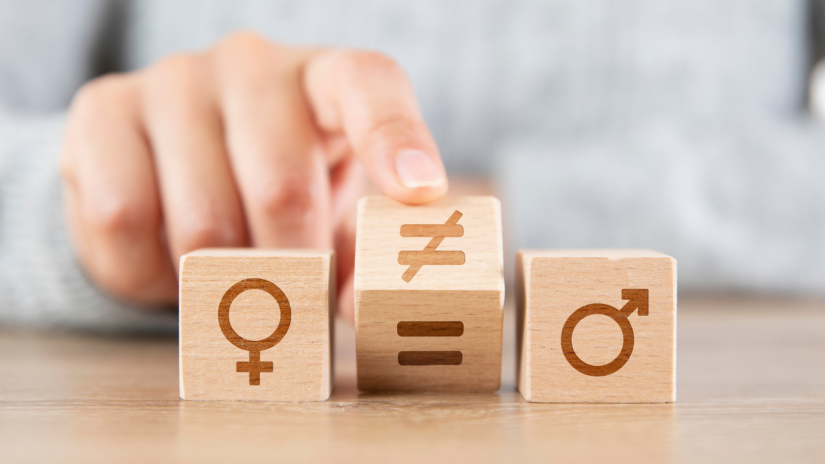
Afkar Aristoteles
In today’s polarized world, gender issues are an important topic of discussion because they are related to building a just society. However, various experts have highlighted that efforts that should support gender equality are often based on biased perspectives and misrecognized.
The topic of gender justice and polarization became a discussion cluster at the Unconference: “Polarization and Its Discontents in the Global South: Mitigation Measures, Strategies, and Policies”. This activity was organized by the Indonesian Consortium for Religious Studies (ICRS) Yogyakarta by presenting communities, academics, and activists from local to international levels at the University Club (UC) UGM, April 25-26, 2025.
Gender Polarization and Injustice
Maria Lugones (2016) describes that since the growth of capitalism and colonialism, the world has viewed gender in a binary way—only men and women—and is based on a patriarchal perspective. This has included gender in polarization by making women and other genders marginalized.
“African society before patriarchy was matriarchal,” said South African activist Keamogetswe Seipato. “Growing commercialization is a form of capitalism that can make all the profits and contribute to the perpetuation of patriarchy. With that perspective, companies and institutions are patriarchal where men are the owners of resources for their families, while women are left behind.”
Religious discourse, interpreted with patriarchal and hegemonic bias, has also contributed to thickening the walls of polarization that separate women’s roles. To fight patriarchy and decolonize the concept of gender, contemporary ideas and theology revisit religious teachings that support equality. Islam, for example, explicitly states in the Qur’an that it does not differentiate between men and women because the most important thing before God is piety.
As time goes by, gender equality in religious discourse continues to grow rapidly. Various religious organizations in Indonesia have also involved women in seeking equality and advocacy. Although religious organizations may support equality and women’s empowerment, various religious organizations can have different interpretations and commitments.
The differences were seen in the viewing session of Three Voices, a film produced by Watchdoc in collaboration with the Center for Religious and Cross-cultural Studies (CRCS), UGM, and the Pardee School of Global Studies-Boston. The film shows different perspectives from two Islamic organizations (Nahdlatul Ulama and Muhammadiyah) and PKS, a party affiliated with Islamic politics (PKS), in responding to gender justice issues in Indonesia, such as the Family Resilience Bill, the Elimination of Sexual Violence Bill, the issue of polygamy, and adultery.
In the differences of religious groups, polarization is very possible. I believe that women, in some cases, can depolarize organically,” said Elis Zulianti Anis, a lecturer at Ahmad Dahlan University (UAD) Yogyakarta. She explained that Muslim society intrinsically has diversity in interpreting the teachings of the scripture and the wisdom of religious leaders, and it is not always fixated on one fiqh. Therefore, Elis suggested that women should have a main role in solving polarization through discussion with different religious groups. This approach is not only proven advice to the state to realize justice, but also to each group to understand and respect diversity and collaborate. “Conflict will always exist. Conflict should be enough to open space for dialogue of differences to compromise on common issues involving women’s perspectives,” said Fatimah Husein, a lecturer at ICRS Yogyakarta.
Unite to Dismantle Polarization
In responding to the film from this session, participants shared insights that allow for collaborative efforts and the elimination of polarizing differences. Whatever the issue of conflict, to depolarize, women’s empowerment must use a lens that is inclusive and free from patriarchal perspectives. The approach should take women from marginalized groups (e.g., Shia, Ahmadiyah, adat, etc.) and non-binary genders into account through an intense engagement or sharing the same space so that they could address the differences and map out the structural issues that need to be resolved.
However, the problem is that women’s empowerment, especially in religious groups, is often carried out through an approach from the incorrect lens. Religious women seem to have no power or authority to vote, while men are always the agents who influence them. The reality is not like that, according to IMAN Research in Malaysia, Nur Huda Ramli. She explained that women in religious groups become agents and have power over their beliefs. As an example, so far, there has been a lot of discourse that describes women in radical religious groups as groups that are influenced and powerless because their communities are seen as patriarchal. On the contrary, as the IMAN Research observed, women are strong agents to assert their ideology in practice and influence the group’s movements. In other words, there is still an inappropriate perspective in viewing the position of women in society with certain labels.
This discussion leads the audience to be critical of the concept and ideas of Western feminism and secularism in viewing Muslim women. Saba Mahmood in Politics of Piety: The Islamic Revival and the Feminist Subject criticizes Western feminism and the orientalist perspective that considers Islam to be restrictive to women. Muslim women are aware and actively participate in empowerment through their religious expression. By the context conveyed by Huda, in other words, we need to be critical of discourses that inaccurately describe the position of women in society with certain identity labels.
“What we are trying to encourage from values to regulations in government is very difficult because we have to find legislative paths and make regulations that support gender equality. It is not enough from there, we must together educate many people, because even though the law regulates, we need to encourage society to do the right thing,” said Alimatul Qibtiyah from the State Islamic University, Yogyakarta, and Tarjih & Tajdid Central Board of Muhammadiyah.
“There is a high potential when women come together, forming a big wave of resistance from polarization. We must understand what we need, and for women’s issues, too,” she added. Furthermore, Alim suggested that collaboration in gender justice advocacy needs to involve scholars, community organizations, and government officials for comprehensive results.
